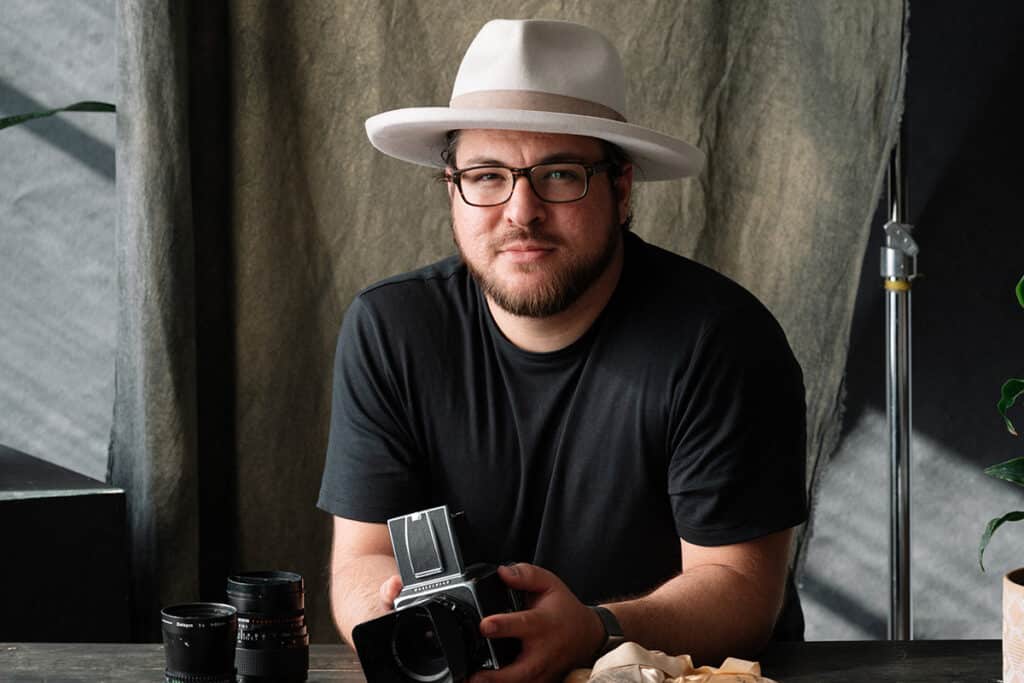When Sharon Cox and her family get ready on weekday mornings, everyone is dressed in a military uniform — Air Force blue for her husband, David, and Army green for Sharon and their two daughters, Samantha and Shannon. “We joke that he’s outnumbered,” says Sharon, who met her spouse when both were cadets at the U.S. Military Academy in West Point, N.Y.
These days, her husband is based at Randolph Air Force Base, while she and the girls are at TMI – The Episcopal School of Texas, where all three are involved in the Corps of Cadets. Samantha, 15, and Shannon, 12, are both cadets in the school’s JROTC unit, and their mother is its assistant commandant. Cox is the 116-year-old school’s first female military instructor, a history-making accomplishment she takes in her stride, since this is not her first “first.” When she entered West Point as a first-year cadet in 1986, women had only been admitted since 1976 and still made up only 10 percent of the student body. The first class to have included women had graduated only six years earlier, and it wasn’t unusual for Cox to be the only woman in a class. At her first assignment after graduation, as executive officer of a parachute infantry unit, she was its first woman officer. Having already completed airborne and parachute rigger schools helped her, but “Passing my PT (physical training) tests is what got me initial respect,” she says. “The physical side is so important (to that mission), that being considered capable goes a long way.”
Fortunately, Cox has always been an athlete. As a student at Temple High School in Temple, Texas, she ran cross-country and track events and played basketball. She was confident that she could pass the demanding physical tests required of cadets when she applied for and received appointments to all the service academies. Not from a military family, she decided to take this route because of the need to put herself through college. Accepted to West Point, she received a full scholarship from the Academy’s Association of Graduates for a year of further study at the University of Mary Hardin-Baylor in Belton. With the additional courses and a competitive level of fitness, Cox was well prepared for West Point. “I didn’t struggle,” she says. “I was so glad to be there, I didn’t know I was supposed to be nervous. I showed up for everything with a big smile on my face.” For her first two years in college, she was a premedical student but switched to a double major in engineering and mathematical sciences because she wasn’t sure about the 13-year service commitment that would be required if the Army sent her to medical school. Through a chemistry class both took, she met her future husband, a physics major; the couple married shortly after their graduation in 1990.
David Cox, who had always wanted to be a pilot, had applied for a commission in the Air Force — an unusual but not unprecedented step — while Sharon went in a different direction. Her birth father, who died saving a girl from drowning when Sharon was only 2 years old, had served in the Air National Guard, and aviation had intrigued her, too. In her last year at West Point, when students have to consider the type of Army service they will apply for, she took a flight physical. “Medically, I was fine, and my eyesight was fine,” she says, “but I was told I was too short all over.” At a little over 5 feet, with a modest reach from fingertip to fingertip, she was deemed too small to reach all the controls in an Army helicopter easily. “So I had to start all over and make a different wish list,” she says. Her choice, and the Army’s choice for her, was the Quartermaster Corps, which provides supplies and other services to soldiers. With her background in mathematics and gift for organization, she felt it was a natural progression. At Fort Benning, Ga., she supervised parachute training and coordinated logistical support for 6,500 personnel in a parachute infantry company.
Meanwhile, her husband’s Air Force commission had come through. “The military makes an effort to keep couples together as much as possible,” says Cox. While she was in Columbus, Ga., her new husband was at Columbus Air Force Base in Columbus, Miss. “It was the best they could do for us,” she says. “There were Army posts and Air Force bases closer together, but none with jobs for both of us.” About four hours’ driving time apart, the Coxes alternated weekend visits whenever they could. During the week, however, Sharon Cox found it was possible to be lonely on one of the nation’s largest, busiest Army posts. “West Point does a very good job of preparing you for leadership,” she says. What she hadn’t foreseen was that it no longer felt appropriate for her to spend free time with male colleagues, and there weren’t many other women officers around. “As a married (woman) officer, I couldn’t hang out with guys,” she explains. Young male officers might decide to go to the gym together at the end of the day, but Cox didn’t feel comfortable doing that.
In their next assignments, Sharon Cox went to Fort Drum, near Watertown, N.Y., where she was a platoon leader, managing supplies and equipment for a forward support unit. Her husband was sent to Griffiss Air Force Base, Rome, N.Y., where he learned to fly the KC-135 Stratotanker. “David picked his (first) aircraft based on the training location,” she says. This time, the Coxes were only about an hour-and-a-half apart, but their relative togetherness wouldn’t last. Her Army unit, the 10th Mountain Division, “hadn’t been deployed since World War II,” she says, but in 1992, she found herself commander of a company of a forward support battalion that would spend months in Somalia, Africa, in support of Operation Restore Hope. Since then, the division has seen service in Bosnia, Haiti and the Middle East; “the deployments never stopped,” she says. Knowing of other two-career military families with dual deployments, Cox — who had then been promoted to captain, received a Best Officer award in a previous position, two commendation and four achievement medals — decided in 1993 to transition into the Army Reserves, where she served the final years of the commitment she had made as a West Pointer. The Coxes then hoped to start a family: Their first child, Samantha, was born in 1994; younger sister Shannon in 1996. As a reservist, Sharon Cox says, “I became a follower, following my husband’s assignments.”
As the family moved from New York state to Kansas and Colorado, she stayed in the Reserves for five years and continued moving through managerial jobs in real estate, a small business, an investment group and her children’s school in Tampa, Fl., where her husband’s career took them after her Reserve commitment was fulfilled. Between jobs, Cox became heavily involved in volunteer work, drawing on her Army training in logistical support to run charity projects at the state and base level. As her husband and their classmates were promoted, her career path was less clear. “I looked at my résumé and thought, ‘There’s no continuity here,” she says. “Sometimes I’d think back to West Point and wonder, ‘What was it all for?’” In 2007, the family moved to San Antonio, where Lt. Col. David Cox became commander of the 99th Flying Training Squadron. Sharon found another managerial position with a business started by a fellow West Point graduate. It was a challenging job, but the downtown commute meant she didn’t see her family from 6 a.m. to 6 p.m., if not later. “I was missing too many of my daughters’ games, all their after-school activities,” she says.
When the family first learned they were coming to San Antonio, they toured eight schools with their elder daughter. “We asked her to tell us ‘yes,’ ‘no’ or ‘maybe’ after each of those visits,” says Cox. “After her day on campus at TMI, that was the first time she gave us a ‘yes.’” Without pressure from her parents, Samantha decided to sign up for the school’s optional military program. When her younger sister followed her to TMI, which serves grades 6-12, she, too, entered as a cadet. Through school contacts, Sharon Cox learned that there would be an opening on TMI’s military faculty, as the previous assistant commandant, a reservist, was being reassigned in anticipation of deployment to the Middle East. Impressed that the school’s larger faculty already included other West Point graduates and retired officers, Cox found out that the job included responsibilities related to training, logistics and equipment —all of which were a good fit with her previous experience, in and out of the Army. There was one hitch: Samantha, then a freshman, had her doubts about going to school with her mother. “She told me, ‘I hope you know this is going to ruin my life,’” Sharon Cox says, laughing. “Luckily, it didn’t turn out that way, and now both girls are good with (my being here).”
At TMI since February 2009, she finds this job as challenging as any she has held. “I lost 10 pounds in my first two weeks here,” she says. “Before, I had a sedentary job; here, we’re on our feet all day with the cadets.” She still works a long day, from getting ready for morning formation through leadership classes, office hours, afternoon formation and special Corps activities, but she’s able to spend more time with her daughters and shares school vacation time with them.
She has received some thanks from parents of female cadets for providing a role model. Cadets, however, “don’t seem to think it’s any big deal (to have a woman military instructor),” she says.
Her elder daughter has taken to military life so well, she spent part of last summer at the Air Force Academy in Colorado Springs, Colo. “She’s definitely interested in applying (to college there),” says her mother, “but we aren’t going to push her either way. We saw that cadets who are at the academy because they want to be — not because their parents wanted them there — were the most successful.” Asked if she would want Samantha or Shannon to pursue a military career, Cox says, “Only if that’s really what she wants. If she’s not sure, then I would counsel her to identify what kind of work she wants to do and consider a more family-friendly environment to pursue it.”
It seems that Sharon Cox has found that environment. Looking around her office, she says, “Now, when I remember wondering ‘What was it all for?’ I know: This is it.”
Sharon Cox
Age: 42
Occupation: Assistant commandant, Corps of Cadets (JROTC), TMI – The Episcopal School of Texas.
Personal: Married for 18 years to Air Force Lt. Col. David Cox; two children, Samantha, 15, and Shannon, 12.
Why she’s a Role Model: First woman military instructor in history of a 116-year-old school; found a way to use her military training and experience in a family-friendly setting.
Best advice ever given: From her stepfather, “Why not do with a smile that which you have to do anyway?” Believes: “What one person does affects everyone around them. We’re all in this together.”
Favorite relaxation strategies: “Because I’m such an extrovert, just being at home with my family, keeping things organized.”
People would be surprised that I … Served in an airborne unit and was trained as a parachutist. As a petite woman, she says, “All that combat equipment weighs you down.”
What she’s reading: Honor Bright: History and Origins of the West Point Honor Code and System, by Lewis Sorley, an alumnus of both TMI and West Point, because TMI’s honor code is based on West Point’s and because recession-linked corporate misdeeds prove the importance of ethics to our culture.
Author: Paula Allen
Photographer: Janet Rogers




